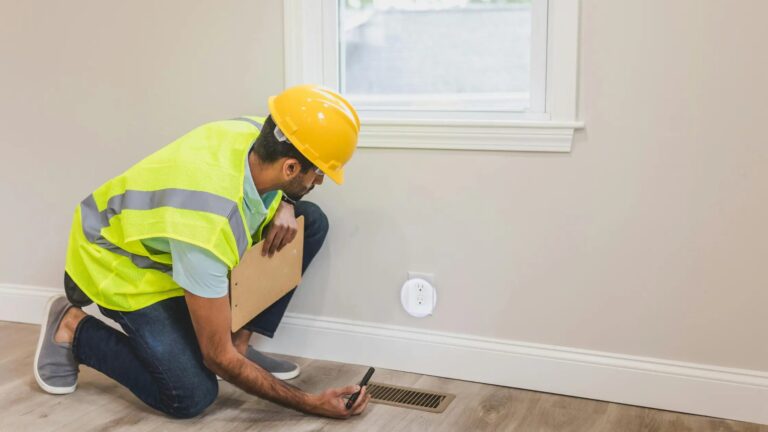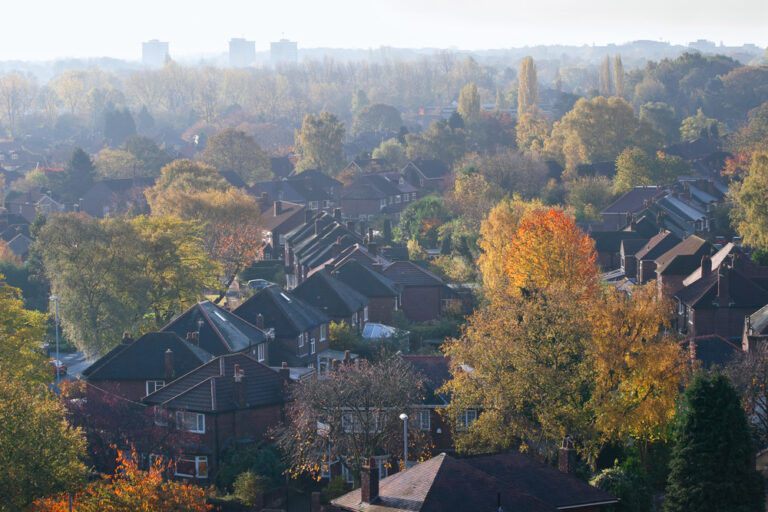According to the English Housing Survey, there were 4.4 million privately rented homes in England in 2020 and demand for good quality rental properties continues to rise.
But becoming a landlord isn’t as simple as buying a property and renting it out – there’s a huge amount you’ll need to consider.
This guide explains how you can become a landlord and covers everything you’ll need to think about before you…
Is buy-to-let a good investment?
Buy-to-let remains a good investment for the long term.
Although landlord margins are tighter due to changes to buy-to-let taxation, a long-term property investment will generate an income for you on top of any capital growth while you own your property.
Rightmove’s latest rental trends tracker revealed asking rents outside of London were up more than 11% in 2021, with rental demand up 6% and available properties down 26%.
That collision of high demand and low supply means a good opportunity for landlords who adopt a long-term strategy.
How do I become a landlord?
Becoming a landlord is hugely exciting and property investment can change your life.
But being a landlord isn’t easy, and there are many things you’ll need to consider before deciding if property investment is right for you:
1. Understand a UK landlord’s responsibilities
Before you start looking for a buy-to-let property to purchase, it’s hugely important that you understand the level of responsibility you’ll have when you become a landlord.
Not only are you responsible for your tenants’ health and safety, but being a landlord also comes with many responsibilities towards yourself – including taxation.
The compliance responsibilities you’ll have towards your tenants include:
Gas and electrical safety
You must have an annual gas safety check carried out at your rental property and provide your tenants with a copy of your gas safety certificate.
On top of that, you must have an Electrical Installation Condition Report (EICR) carried out every five years and provide your tenants with a copy of the report.
Energy Performance Certificates (EPCs) and Minimum Energy Efficiency Standards (MEES)
When you start marketing your rental property, you must have a valid Energy Performance Certificate (EPC) in place.
Under current Minimum Energy Efficiency Standards (MEES), your property must also have an EPC rating of at least ‘E’ or you cannot legally let it.
Fire safety
If you decide to rent out your property on a furnished basis, all furnishings you provide must comply with fire safety regulations.
You must also provide working smoke detectors on each floor of your property at the start of a tenancy, alongside a carbon monoxide alarm in any room used as living accommodation which also contains a fixed fuel combustion appliance (excluding gas cookers).
You’ll also be responsible for repairing or replacing smoke and carbon monoxide detectors once informed by your tenants.
Deposit protection and caps
By law, you’ll need to protect your tenants’ deposits in a government-backed deposit protection scheme and tell your tenants where their deposits are held.
Under the Tenant Fees Act 2019, the maximum deposit you can charge a tenant is five weeks’ rent if their annual rent is below £50,000.
If it’s above £50,000, you can charge a maximum of six weeks’ rent.
If you take a holding deposit from a tenant, this can only be a maximum of one week’s rent.
Repairs and maintenance
When you rent out a property to tenants, you’re responsible for repairing and maintaining the property’s exterior and structure, as well as water supply, gas, and electricity.
If you or a tradesperson needs to gain access to the property to carry out repairs or maintenance, you must give your tenants adequate notice.
2. Finding the right property
Finding the right property to rent out is key for any new landlord.
Before you start looking at potential properties to purchase, you should do your research –on the area and the type of people who live there, as well as the type of property you might want to buy.
Think about:
The location and local amenities
Does the area you’re looking to buy in have good tenant demand and what kind of tenants does the area attract?
Is it a lively town popular with young renters, or is it a quieter location suitable for tenant families?
This information will also help you decide what kind of property to buy, with a flat likely to be more popular with young professionals and a larger house with family renters.
Transport links
If you’re looking to attract commuting professionals to your rental property, think about the transport links in the area your searching in.
How close are rail links to the property?
Are the roads busy, making commuting more difficult?
Are there other public transport links nearby, such as regular buses?
Schools
If families are your target market, do some research into school catchment areas when looking at properties.
A property in catchment for an excellent and popular school is likely to be more in demand, while you may also be able to charge more rent in comparison to other properties outside of the catchment area.
Property type, age, and condition
While a modern property is likely to cost you less to maintain, it may cost you more to buy compared with one that requires some work to bring it up to standard.
Think about where your money is best spent and what tenants in the area are looking for.
Are flats more popular, or do renters in the area prefer houses?
Do they look for character or is modern convenience at the top of their wish list?
The best place to start your pre-buying research is with your local agent, who will be able to give you key information on what renters are looking for.
3. Working out rental yield
Working out a property’s potential rental yield before you buy it will give you a better idea of its investment potential.
Rental yield is how much annual income you earn from rent as a percentage of the property’s value.
In the case of a property you’re considering buying, you should use the figure you’re prepared to pay for it instead of the value.
For example, you’re prepared to pay £200,000 for a property and your local agent has estimated that you’ll receive £850 per month in rent.
That £850 in monthly rent works out to £10,200 per year.
So, to calculate the yield, you should divide 10,200 by 200,000 and then multiply by 100:
(10,200 ÷ 200,000 x 100 = 5.1%)
Your local agent will be able to tell you more about average rental yields in the area, so you can assess whether than 5.1% yield makes the property a solid investment.
4. Getting a mortgage
If you’re purchasing a property to rent out, you’ll need a specialist buy-to-let mortgage unless you’re a cash buyer.
Buy-to-let mortgages are generally viewed as higher risk by lenders, so they work slightly differently to the standard residential mortgages you may be used to:
BTL mortgages sometimes come with higher fees
Interest rates can be higher
You may need a higher deposit, usually at least 25% of the property’s value
Your lender will calculate your borrowing potential against the amount of rent you expect to receive
Your projected rent will probably need to be 25% – 30% more than your monthly mortgage repayment
If you’re in a situation where you’re looking to rent out your existing home, you’ll need to speak to your mortgage lender and either obtain consent to let from them or switch your mortgage to a buy-to-let loan.
5. Landlord tax
Being a landlord means complying with your tax obligations, including:
Income tax
If you earn between £1,000 to £2,500 in rent from your property annually, you’ll need to inform HMRC about this.
If that income is between £2,500 and £9,999 after expense deductions, or more than £10,000 before expenses, you’ll need to complete an annual self-assessment tax return and pay any income tax you owe.
Allowable expenses that can be deducted from your income tax liability include:
Letting agent management fees
Solicitor fees
Insurance costs
Costs of maintenance and repairs, but not improvements
Utility bills
Accountancy fees
Corporation tax
If you decide to operate your rental property under a limited company, you’ll need to pay corporation tax annually on your operating profit, which is calculated after expenses.
Any money you extract from the business as income through salary or dividends may also be subject to income tax.
Capital gains tax
If you ever decide to sell your rental property, you may have to pay capital gains tax.
This tax is calculated on any ‘gain’ you make – which is basically the difference between what you paid for the property and what you later sell it for.
There are deductions you can make when calculating your capital gains tax bill, while you’ll also receive an annual capital gains tax-free allowance.
Stamp duty
When buying a property to rent out, you’ll need to factor in additional stamp duty costs.
Second homes or buy-to-let properties when the buyer is already a property owner are subject to an additional 3% stamp duty surcharge, meaning you’ll pay the following rates:
| Purchase price portion | BTL stamp duty rate |
| £0-£40,000 (if total price is £40,000 or less) | 0% |
| £0 – £250,000 | 3% |
| £250,001 – £925,000 | 8% |
| £925,001 – £1.5m | 13% |
| £1.5m + | 15% |
6. The costs of being a landlord
Although you’ll be making money from renting out your property, you’ll also need to factor in several key costs, including:
Mortgage repayments
It’s likely your mortgage repayments will be your biggest regular outgoing from your rental property.
Your mortgage lender will want to see that your monthly rent adequately covers your mortgage repayments, but you should also need to do your sums to make sure your property is a viable investment.
Insurance costs
When you become a landlord, you’ll need certain insurance policies to protect you and your investment property.
Your mortgage lender will almost certainly stipulate that you have a buildings insurance policy in place before they lend to you.
And while other insurance products aren’t a legal requirement, you should consider a landlord insurance policy that will protect you against:
Loss of rent if your tenants can’t pay
Damage or theft of your contents if your property is furnished
Damage to fixtures and fittings
Claims made if someone is injured at your rental property
Letting agent fees
A good letting agent can help to ensure your rental property is fully compliant, while also screening potential tenants and ensuring your property is well looked after and maintained.
All of this means you can take more of a backseat when it comes to running your property, but you’ll need to factor in your agent’s fees for their work.
This could be a fixed fee for finding a new tenant, or a percentage of your monthly rent for full management of your property.
Property maintenance
You’re responsible for repairs and maintenance of your rental property’s exterior, structure and key utilities like water, gas, and electricity.
A good idea is to keep a contingency fund in place to cover repairs and maintenance and remember to keep all receipts for any work you have done, as these may be tax deductible.
Compliance
Compliance is key when renting out a property, so you’ll need to consider the costs of:
Gas and electrical safety checks and any upgrades required
Fire safety, such as smoke and carbon monoxide alarms
7. Finding and keeping good tenants
One of the keys to a successful investment property is finding and keeping good tenants.
Good tenants will look after your property, limiting the amount you need to spend on decorating and general repairs and maintenance.
They’ll also pay their rent on time and if they’re happy, they’ll stay in your property longer – meaning fewer remarketing costs and void periods.
To find the right tenants for your property, adequate background checks are vital and the best way to ensure this is done properly is to use a letting agent.
Your agent will fully reference your potential tenants through their employers and previous landlord and perform affordability checks to ensure they can afford your monthly rent.
Once you have good tenants in place, it’s a case of keeping them.
To help make sure your tenants are happy and understand their obligations as well as yours, you should:
Make sure your tenancy agreement makes clear all rules and expectations – a lack of clarity or miscommunication is often the fastest way to a fall-out between a landlord and tenant
Run check-ins and regular property inspections – if you use a letting agent to do this, you’ll have the peace of mind that this is being done, while your tenants will know who they need to contact if they need anything
Further reading…
- Everything landlords need to know this year
- How to keep your tenants happy
- Essential tax advice for landlords







